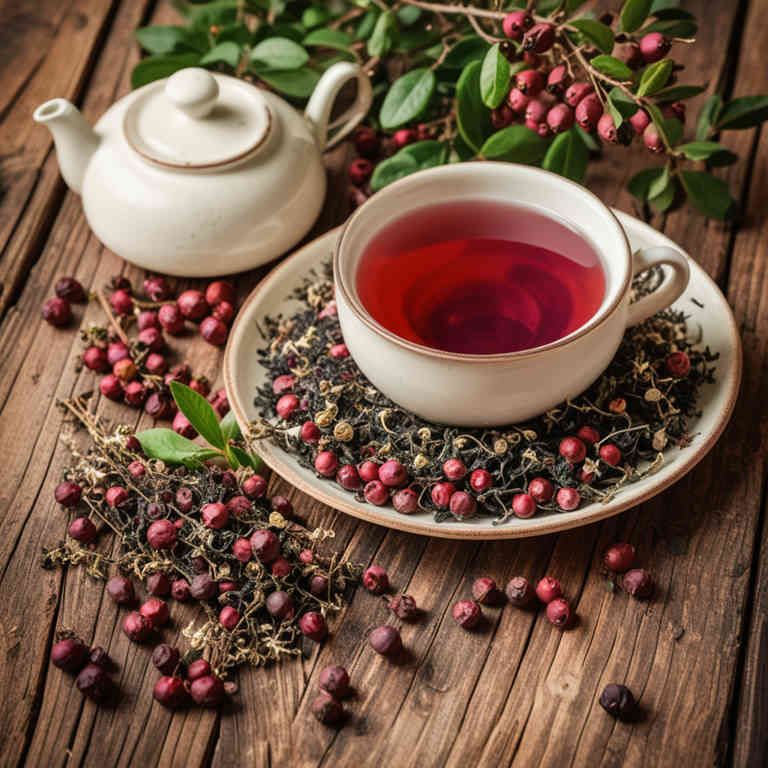Vaccinium myrtillus tea for medicinal use

Vaccinium myrtillus tea is a herbal preparation made from the dried leaves and berries of the bilberry plant.
It is traditionally used in herbalism for its rich content of antioxidants, particularly anthocyanins, which are believed to support eye health and improve circulation. This tea is often consumed to alleviate symptoms of eye fatigue, enhance vision, and promote cardiovascular wellness. It may also be used to support urinary tract health and reduce inflammation.
In some traditional practices, it is combined with other herbs to address conditions like diabetes and hypertension.
Uses
Vaccinium myrtillus tea has been used to treat various ailments for centuries, particularly in traditional medicine practices across Europe.
Historically, it was valued for its potential to alleviate symptoms of colds, coughs, and respiratory infections due to its antioxidant and anti-inflammatory properties. In traditional herbal medicine, it was also used to support digestive health and as a tonic for overall vitality. Modern research has explored its potential benefits for immune support and its role in managing conditions like diabetes and cardiovascular health.
Today, it remains a popular herbal remedy, appreciated for its soothing flavor and purported health benefits.
Benefits
Vaccinium myrtillus tea has health benefits such as improving digestive health, supporting immune function, and reducing inflammation.
This tea is made from the dried leaves and berries of the bilberry plant, which is rich in antioxidants and anthocyanins. It may help protect against oxidative stress and support eye health due to its high concentration of flavonoids. Additionally, it has been traditionally used to aid in urinary tract health and may promote skin health.
Regular consumption of this herbal tea can contribute to overall well-being when consumed as part of a balanced diet.
Constituents
Vaccinium myrtillus tea active constituents include anthocyanins, flavonoids, tannins, and polyphenols.
These compounds are known for their antioxidant and anti-inflammatory properties. Anthocyanins contribute to the tea's deep red color and provide protective benefits for the cardiovascular system. Flavonoids support immune function and may help reduce oxidative stress in the body.
Tannins and polyphenols aid in digestion and may promote gut health.
Preparation
To make Vaccinium myrtillus tea, start by gathering fresh or dried blueberry leaves, as the berries themselves are not typically used for tea.
Rinse the leaves thoroughly and then place them in a heatproof container. Pour boiling water over the leaves and let the mixture steep for 10 to 15 minutes. Strain the liquid to remove the leaves, and enjoy the tea either warm or chilled.
This herbal preparation is known for its mild flavor and potential health benefits.
Side Effects
Vaccinium myrtillus tea may lead to gastrointestinal discomfort, including nausea, vomiting, and diarrhea, particularly when consumed in large quantities or on an empty stomach.
It may also cause allergic reactions in individuals sensitive to the plant family Ericaceae, which includes blueberries and other related species. Long-term use could potentially interfere with blood sugar levels, making it important for diabetics to monitor their glucose levels closely. Additionally, some studies suggest it may have a mild diuretic effect, which could be problematic for individuals with kidney conditions.
As with any herbal preparation, it is advisable to consult a healthcare professional before use, especially for those with pre-existing medical conditions or taking other medications.